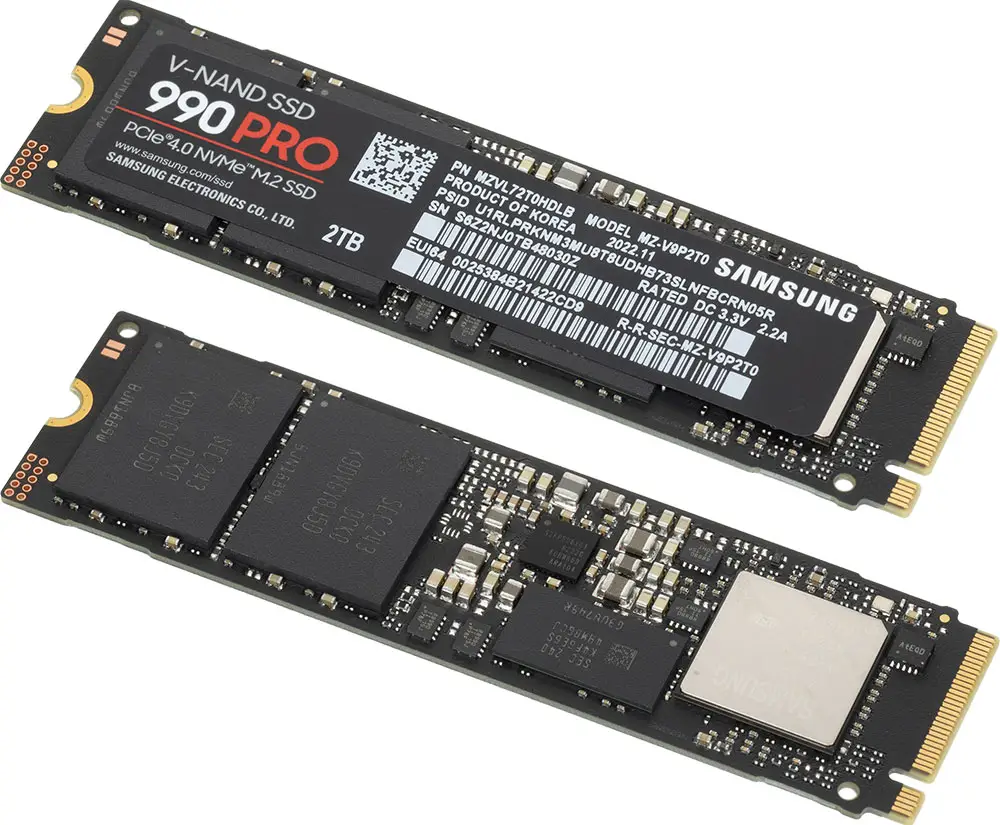While PCIe Gen 5 SSDs boast blazing-fast transfer speeds, the reality is that these speeds offer little to no significant improvement in game load times compared to their predecessors, the PCIe Gen 4 SSDs. This observation is supported by numerous case studies, including a notable test conducted by The Verge. In their test, game load times on PCIe Gen 5 SSDs were found to be nearly identical to those on Gen 4 SSDs for popular games like Counter-Strike Global Offensive and Cyberpunk 2077.
Using the CrystalDiskMark 8.0 benchmark, The Verge demonstrated that a 2TB PCIe Gen 5 SSD loaded Counter-Strike: Global Offensive only 0.44 milliseconds faster than a 1TB PCIe Gen 4 SSD. The margin was slightly better in Cyberpunk 2077, with the fastest PCIe Gen 5 SSD completing the task just 1.06 seconds quicker than its Gen 4 counterpart.
It’s important to note that The Verge’s test focused exclusively on game loading times. However, they did find some speed advantages for PCIe Gen 5 SSDs in a separate test. In this additional CrystalDiskMark 8.0 test, a 2TB Crucial T700 Gen 5 SSD achieved impressive write speeds of 11,789MBps and read speeds of 12,251MBps, significantly outpacing the 5000MBps read/write speeds of a 1TB Samsung 980 Pro Gen 4 SSD. Similarly, a review of the Crucial T705, recognized as the fastest PCIe 5.0 SSD to date, showcased a similar performance advantage over last-generation SSDs.
So, what accounts for this discrepancy in performance? The answer lies in the comparison of two distinct types of speed: sequential read/write speed versus random read/write speed. Sequential read/write speed refers to how quickly a drive can read data blocks in a fixed order, a characteristic that offers a notable speed advantage when dealing with large files. This is the area where Gen 5 SSDs excel, delivering faster performance for tasks such as file transfers.
Conversely, random read/write speed is the primary factor affecting game load times. It is this type of speed where Gen 4 SSDs can almost match the performance of the newer Gen 5 SSDs. This explains the minimal difference in game load times between PCIe Gen 5 and its immediate predecessor, Gen 4. Intriguingly, a similar outcome is observed when comparing PCIe Gen 5 SSDs to PCIe Gen 3 SSDs.
In summary, while PCIe Gen 5 SSDs offer impressive sequential read/write speeds, the limited improvement in random read/write speed compared to Gen 4 SSDs makes them a less appealing upgrade for PC gamers primarily focused on enhancing game load times.







